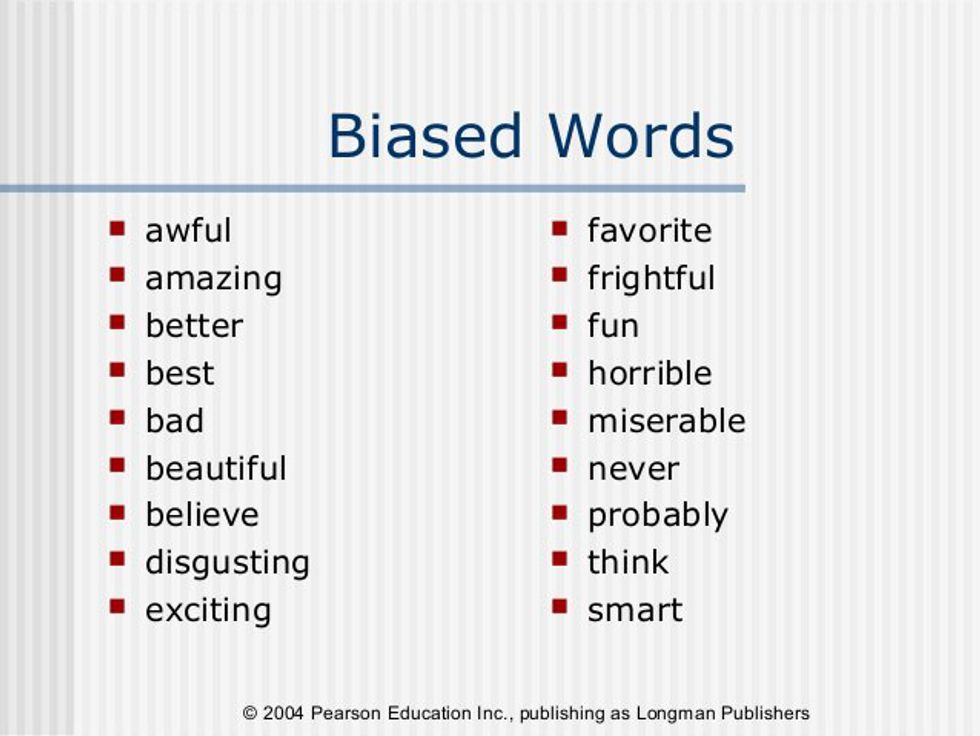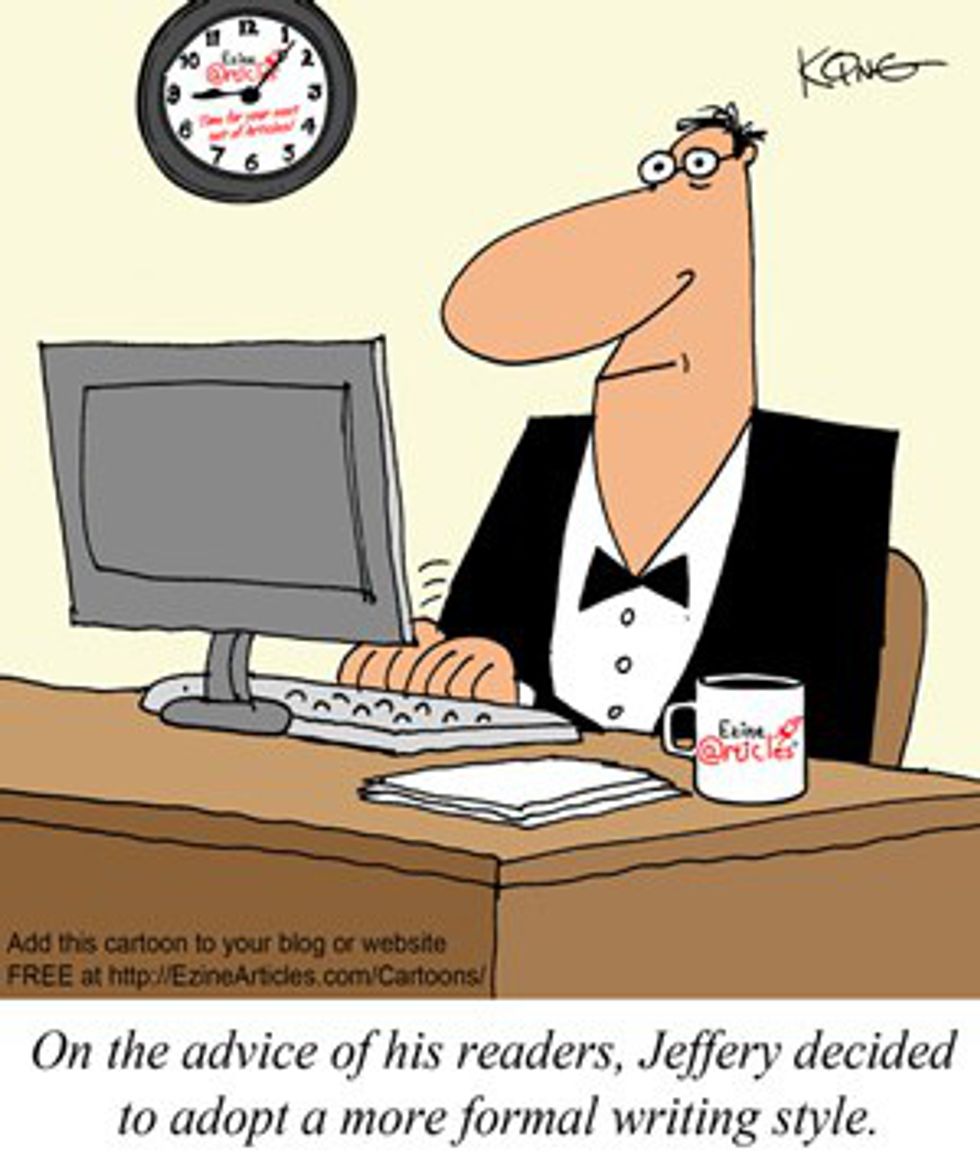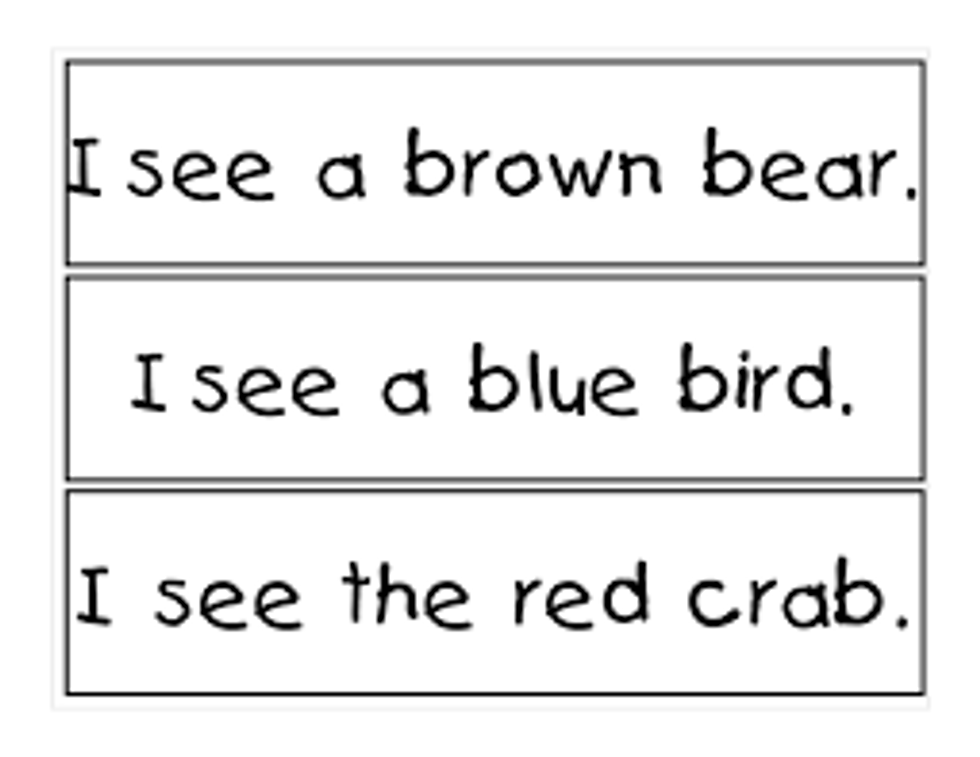Getting right to the point in a typical writing project seems extremely difficult when faced with the obstacles of originality and -- well let’s not sugar coat our objectives -- sounding intelligent. In fact speaking in plain English has objectively become considered either satirical, effectively more amusing and taken less seriously than using a rather elaborate or archaic way of speaking. It may seem difficult not to work this way, especially since it may have been taught to you by multiple professors to cover a certain amount of pages for an essay that you may have fully expressed below the minimum requirement, while the extra pages become “fluff” or fillers. Most importantly we do not want our writing to make us sound like a tool, or someone who is ethically unrelatable to our audience. So let's get to the point. Here are some steps.
1. Biased Words
A lot of times when we are trying to convey a point of interest, we often forget to monitor what words may actually be considered stereotypical or offensive to other people, those potentially within your audience. It is imperative that you not use certain phrases and adjectives when describing a culture, language or person. Sentences like: “Although he was Asian he was not smart,” or “Because she was blonde, she could not figure out the math problem,” are considered racially or ethnically biased. Instead, try rewording your sentences to sound less offensive. Consider writing the following: “He was not smart,” and “She could not figure out the math problem.” It is simpler and does not exploit the idea that the person’s race or gender could be a limitation factor in their potential.
2. Formality
Your level of formality should be on par with the expectations your ideal audience would have when reading your articles. For example. I am currently writing for high school and college students. I am trying to use words that are familiar to what my two audiences have learned or are currently learning in their courses. I expect you as an audience to be mature adolescents and adults striving for the same goals in proper writing etiquette. However, you many be writing for an entirely different audience. Perhaps it is for someone at work -- an employer, a friend, or a possibly a teacher. Your sentences should not look like the following when speaking to someone of a higher hierarchy. You want to use more formal terms. For this example sentence I will be using a sample letter for a position at a company.
“Dear Ms. Kramer: I am applying for the assistant Molecular Bio-Technician position advertised on your website, which I accessed on July 15. In the next few days, I will be receiving my Masters in Bioinformatics as well as Molecular Biology from the University of Berkeley California.”
This was an example of a higher level of formality. Now we will see an example of an informal piece of writing.
“Hi! I found your ad on Facebook and now I want to apply for the job! Let me know if you’d like to have me. I am incredibly organized, and work hard, and have many connections, and do a lot of work.”
This was an example of an informal letter, It sounds too personalized like that of a message to a close friend or acquaintance. With a stranger, you must always get to the point by announcing your credentials in a structured list without overloading your document with too many unnecessary conjunctions.
3. Slang and Idiomatic Expressions
You should always avoid using phrases that may only be familiar to one specific group of people. Slang words like, “Ya’ll” or “Cool” are unfamiliar to certain groups and can mean different things in many places. For example “Cool” in the United States means interesting, unique, and incredible, while “Cool” in European countries means chilled, cold, or breezy. Also try to refrain from using idiomatic expressions such as, “It’s raining cats and dogs,” or “Hold your horses.” Some people not accustomed to the English language may take these phrases literally and become confused.
4. Wrap it All Together
Remember, a simple sentence does not equate to a simple mind. In other words, you are not considered less intelligent for lack of words. In fact, the most ethos and pathos can be observed in just a few words because it is clear, concise and simple.Try to make your work simple by trying out these methods!

























